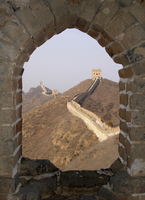This past Monday, China's highest governmental legislative body, the National People's Congress (NPC), wrapped up its annual meetings in Beijing. While these meetings are mostly considered to be rubber-stamp assemblies, they can reveal something of the Chinese Communist Party leadership's policy priorities, as well as some of the various interest groups within the party. And as the statements and declarations emerging from this year's meetings make clear, the party leadership has identified consolidating the institutional move toward "inner-party democracy" as the key to curbing corruption and preventing concentration of power at the local levels of government.
This "democratic centralism" takes on added importance for the central party leadership in a post-stimulus scenario: Now that reasonable growth is apparent, Chinese economic policymakers will have to start dealing with the special interests that the stimulus package has created. Beijing's vision of a "harmonious society" requires the state to defend its population against the inequalities created by these modern roving bandits. But to successfully accomplish this, the CCP will have to overcome significant challenges. The political forces and interest groups that benefit from the central government's patronage will not give up their privileges easily, even if that means undermining stability and the power of the state.
In this sense, Latin America's experience offers useful insights into the impact of this kind of rent-seeking behavior on the state. Historically, Latin American states have been parceled out, to varying degrees, between competing clienteles. Most of these states lacked established, clearly understood rules and regulations -- whether formal or informal -- regarding the interaction of actors as well as discretionary behavior on the part of state officials. As a result, alliances arose between private interests and public officials to carve up pieces of the state administration for their own benefit.

